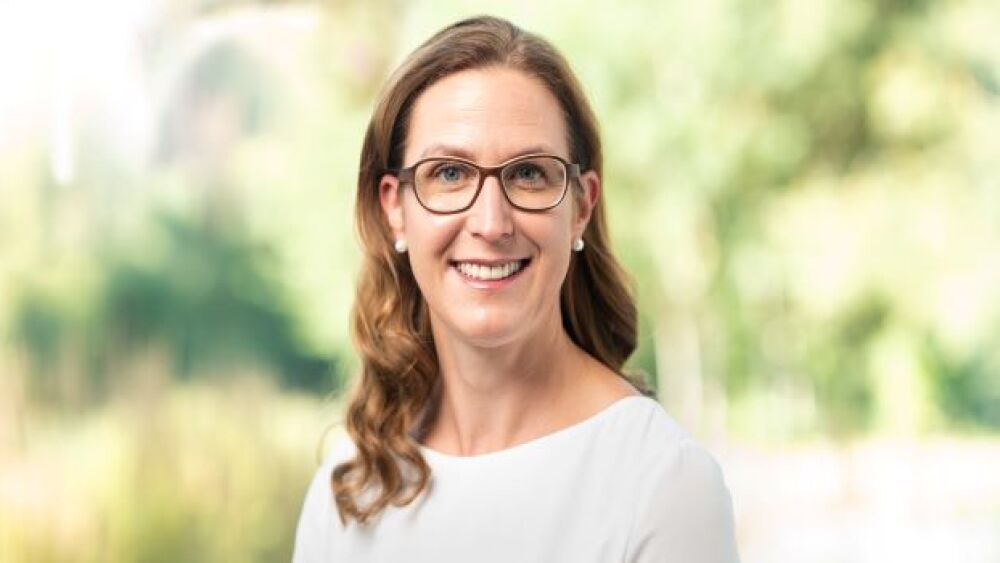MiroBio’s pipeline involves checkpoint receptor pathways, not for immuno-oncology indications, but for the treatment of autoimmune diseases.
Dr. Carolin Barth/Courtesy of MiroBio.
Dr. Carolin Barth, formerly the global head of commercial and pipeline strategy, cell and gene, at Novartis, is taking on the role of chief executive officer at Oxford, UK-based MiroBio. The biotech company is focused on a new class of precision therapies for autoimmune diseases. Barth took time to speak with BioSpace ahead of the announcement. Her official start date is September 25.
MiroBio’s pipeline involves checkpoint receptor pathways, not for immuno-oncology indications, but for the treatment of autoimmune diseases. Checkpoint pathways regulate immune cell function, with each having its own role in specific types of immune cells and different activities in disease. MiroBio believes it can selectively activate (agonize) the appropriate checkpoint receptor to control overactive immune cells without being broadly immunosuppressive. At this time, Barth declined to say which autoimmune indications the company will focus on first, although she noted that autoimmune diseases include irritable bowel syndrome, psoriasis and rheumatoid arthritis.
The company’s compounds are designed to activate inhibitor checkpoint pathways via receptor agonists, which Barth described as “balancing the immune system.” She noted that “cancer patients treated with checkpoint inhibitors can display autoimmune disease-like side effects.”
In essence, MiroBio’s new class of antibodies activate the brakes on cell surfaces, such as the PD-1 protein on T-cells. This brake keeps the immune cells from attacking the body without decreasing its ability to fight pathogens.
The two compounds are MB272, which targets the immune receptor BTLA, and is expected to enter a Phase I clinical trial in early 2022. The second is MB151, a PD-1 agonist program, which is in preclinical development. Barth expects it to enter the clinic sometime after MB272.
Barth said MiroBio is “a very exciting company, both the technology and their approach to precision immunology.” She specifically noted the people.
The company recently added Julian Hirst, formerly of Immunocore, as chief financial officer, and Lynne Murray, formerly of AstraZeneca, as senior vice president of research & development. While at Immunocore, Hirst played a pivotal role in raising more than $930 million in three private rounds, a venture debt financing and an initial public offering (IPO). While at AstraZeneca, Murray was head of regeneration, early respiratory and immunology.
Barth held positions of increasing responsibility at Novartis over 17 years, acting as global program head for numerous development programs in areas including dermatology, rheumatology and chronic myeloid leukemia. As global head of dermatology, she played a significant role in developing and commercializing Cosentyx and Xolair. She received her medical degree at the University of Tübingen, Germany and did her residency in hematology & oncology at the University Hospital Tübingen.
“I am very excited to join MiroBio — a company that stands out for its deep expertise, focus and bold vision for delivering a new, better class of therapies for autoimmune disease,” Barth stated. “With its agonist antibody design expertise and unique approach to understanding both checkpoint pathway function and its potential in a wide variety of disease settings, I believe MiroBio can deliver several best-in-class new medicines that offer patients more efficacious and safer treatment options.”
Barth discussed the company’s drug discovery engine, I-ReSToRe, which she says, “can evaluate more than 70 inhibitory checkpoints, and determine how they work in specific cell types.”
The company’s pathway database leverages a growing global collaborator network that allows it to catalog diseased inhibitory receptor states, which will provide background for the future selection of patient populations for clinical trials and highly targeted indications.
The company is the culmination of 15 years of foundational work conducted at the University of Oxford. The antibody modulators of immune cell receptors were based on the research of its founding scientists, Simon Davis, professor of molecular immunology at MRC Weatherall Institute of Molecular Medicine, and Richard Cornall, Nuffield professor of clinical medicine at Oxford. MicroBio officially launched in October 2019 with a $34 million Series A round co-led by Oxford Sciences Innovation and Samsara Biocapital. It was joined by Advent Life Sciences and SR One.
At the time, Davis said, “we have been studying key aspects of signaling through immune cell receptors for over 15 years. Working collaboratively with MiroBio and its investors, we now could translate our insights, ideas and technologies into important new medicines that could significantly improve patients’ lives.”
Featured Jobs on BioSpace





